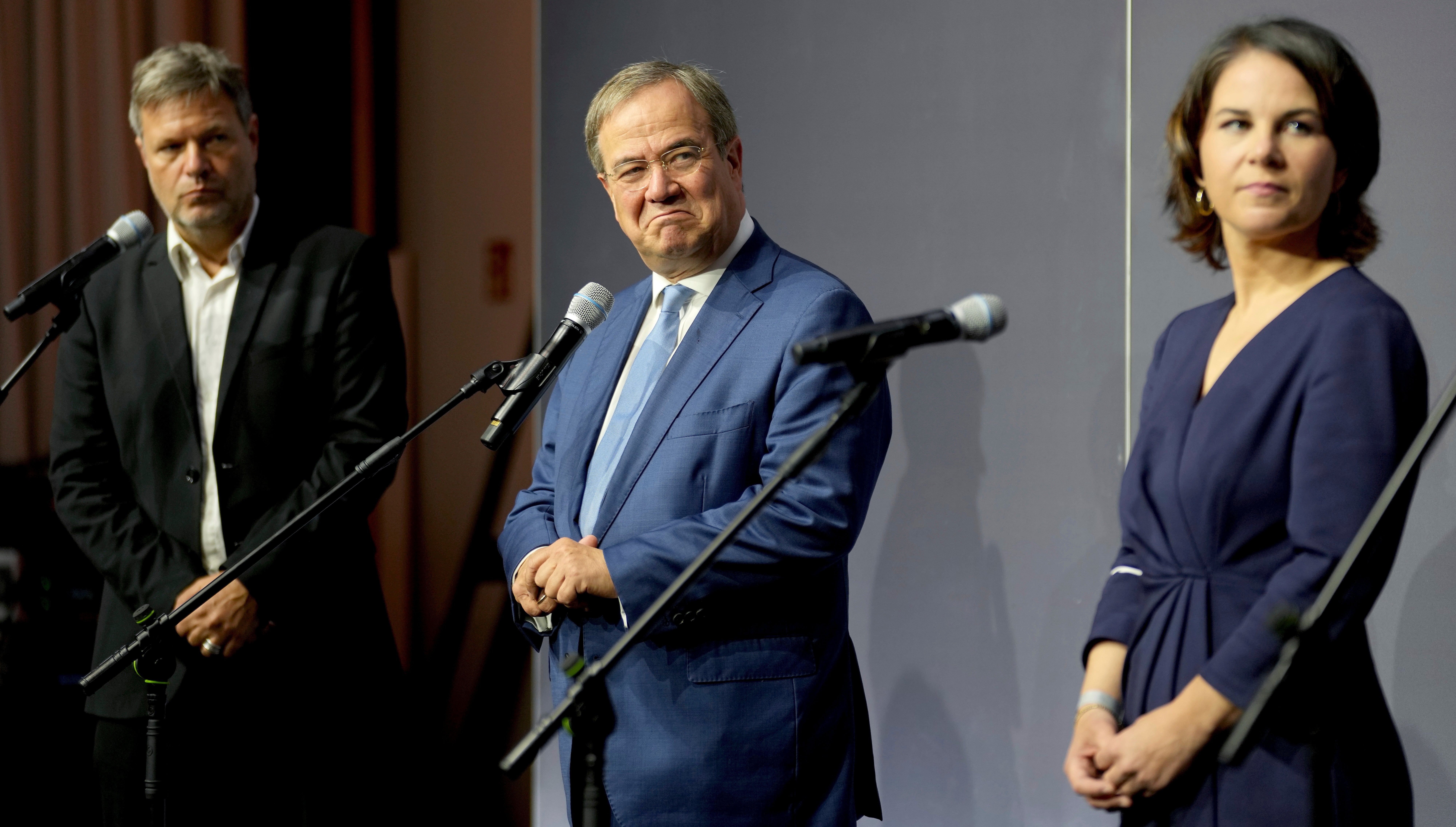Germany’s SPD to open coalition talks with “kingmaker” parties
The CSU’s Markus Soeder acknowledged “there will very probably not be a government” with their conservative alliance.

Your support helps us to tell the story
From reproductive rights to climate change to Big Tech, The Independent is on the ground when the story is developing. Whether it's investigating the financials of Elon Musk's pro-Trump PAC or producing our latest documentary, 'The A Word', which shines a light on the American women fighting for reproductive rights, we know how important it is to parse out the facts from the messaging.
At such a critical moment in US history, we need reporters on the ground. Your donation allows us to keep sending journalists to speak to both sides of the story.
The Independent is trusted by Americans across the entire political spectrum. And unlike many other quality news outlets, we choose not to lock Americans out of our reporting and analysis with paywalls. We believe quality journalism should be available to everyone, paid for by those who can afford it.
Your support makes all the difference.The centre-left Social Democrats (SPD) moved a step closer on Wednesday to heading Germany‘s next government, signing up the Greens and business-friendly Free Democrats (FDP) for coalition talks following an inconclusive national election.
The Sept. 26 federal ballot, in which no party won an overall majority and the SPD narrowly relegated outgoing Chancellor Angela Merkel’s conservatives into second place, has kicked off a round of horse-trading.
Unlike many other European countries, where the president or monarch invites one party leader to try to form a government, in Germany it is up to the parties themselves to decide.
Both the SPD and the conservatives have courted the two smaller parties - which finished third and fourth - to try to secure power in a potentially drawn-out coalition-building process.
At stake is Germany‘s political future after 16 years with Merkel at the helm, its appetite to shape up Europe’s largest economy for the digital era, and the extent of its willingness to follow her lead on engaging on global issues.
FDP leader Christian Lindner said the Greens had proposed holding initial exploratory talks with the SPD on Thursday.
“We have accepted the proposal,” Lindner told reporters, adding that he had contacted SPD chancellor candidate Olaf Scholz.
“In coordination with the Greens, I have proposed to Mr. Scholz that we meet tomorrow for such a trilateral meeting, and that will happen.”
Armin Laschet, the conservative bloc’s leader and its candidate for chancellor, said his party respected that decision but also stood “ready as partners for talks.”
Markus Soeder, leader of the Christian Social Union (CSU), Bavarian sister party to Laschet’s Christian Democrats (CDU), said “there will very probably not be a government” with their conservative alliance.
DIFFERENCES TO BRIDGE
Both the Greens and FDP kept open the option of pursuing negotiations with the conservatives but said there would be no parallel talks for now.
An SDP/Green/FDP coalition - known as a “traffic light” coalition on account of the parties’ colours - already governs in the western state of Rhineland-Palatinate, but at federal level such a formation would be a first in Germany.
After proposing the three-way talks, Greens co-leader Robert Habeck said his party still had considerable differences with both the FDP and the SPD.
“Many things have not yet been discussed,” Habeck said.
Lindner said his party and the Greens, which held bilateral talks before each scoping out the larger parties, saw many things very differently.
“But we have learned that if we try to reach an understanding, a kind of pro-progress centre can be formed and from there we can put our imaginations to work,” Lindner added.
From opposite ends of the political spectrum and at odds on a range of issues, the Greens and FDP have worked to bridge their differences and the SPD had said on Sunday it was ready to move to three-way coalition talks with them.
Merkel, in power since 2005, plans to step down once a new government is formed.
Join our commenting forum
Join thought-provoking conversations, follow other Independent readers and see their replies
Comments